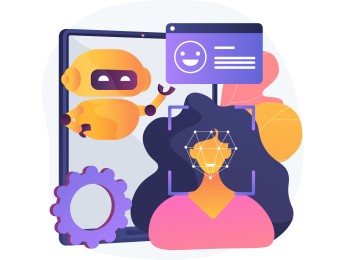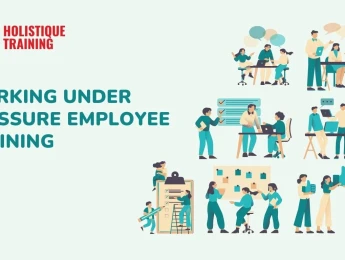As cultural heritage faces threats from environmental damage, conflict, and time, emerging technologies—especially artificial intelligence (AI)—offer powerful tools for digital preservation, restoration, and access. This course equips professionals in culture, technology, and archiving with the knowledge and skills to use AI for safeguarding heritage assets.
Participants will explore how AI supports image restoration, 3D reconstruction, automated metadata tagging, and language preservation. Through case studies and interactive sessions, the course demonstrates how museums, libraries, and cultural institutions can apply machine learning to revitalise artefacts, digitise collections, and democratise access for future generations.
By the end of this course, participants will be able to:
- Understand the role of AI in preserving tangible and intangible cultural heritage.
- Explore techniques such as digital restoration, image enhancement, and 3D reconstruction using AI.
- Identify tools and platforms suitable for archiving and metadata generation.
- Learn ethical considerations in digital heritage projects.
- Apply AI-based methods to restore, document, and share cultural resources.
This course is designed for:
- Archivists, museum curators, and heritage preservation professionals.
- Researchers and academic professionals in history, archaeology, and digital humanities.
- AI developers and data scientists interested in cultural preservation.
- Public sector professionals in culture and heritage ministries.
- Technologists and startups working on cultural digitisation.
- NGOs involved in heritage conservation and education.
This course uses a mix of interactive lectures, real-life case studies, hands-on demonstrations, and collaborative projects. Participants will explore both the theoretical frameworks and practical applications of AI in heritage work, with opportunities to test AI tools and plan digital preservation strategies.
Day 5 of each course is reserved for a Q&A session, which may occur off-site. For 10-day courses, this also applies to day 10
Section 1: Introduction to Digital Heritage and AI
- Defining cultural heritage: tangible vs. intangible assets.
- The global importance of cultural preservation.
- Challenges in preserving artefacts, architecture, language, and oral history.
- Overview of AI tools relevant to heritage: image recognition, NLP, ML, and more.
- Case study: UNESCO initiatives using AI for preservation.
Section 2: AI for Image and Audio Restoration
- Deep learning in image enhancement and restoration.
- AI tools for repairing damaged manuscripts, photos, and artwork.
- Audio recovery: restoring historical recordings using AI filters.
- Neural networks for upscaling low-resolution artefacts.
- Workshop: Restoring sample artefacts using AI platforms.
Section 3: 3D Modelling and Virtual Reconstruction
- AI in architectural reconstruction and monument simulation.
- Photogrammetry and LiDAR integration with AI for modelling.
- Applications of AR/VR in presenting reconstructed cultural sites.
- Collaborative international projects: Palmyra, Notre Dame, etc.
- Building digital twins of heritage sites.
Section 4: Smart Archiving and Metadata Generation
- Automating tagging, categorisation, and indexing of digital assets.
- Natural Language Processing (NLP) for historical document transcription.
- Building searchable heritage databases using AI.
- Interoperability and open-access platforms for global use.
- Hands-on activity: Structuring a digital archive using AI tools.
Section 5: Language and Oral Tradition Preservation
- AI in endangered language documentation and translation.
- Voice recognition and speech-to-text for oral history.
- Cultural storytelling preservation using NLP and generative AI.
- AI-generated subtitles and translation for cultural education.
- Case study: Revitalising indigenous languages using AI.
Section 6: Ethics, Access, and Community Involvement
- Cultural sensitivity and ethical concerns in digitisation.
- Ownership, consent, and rights of indigenous communities.
- Balancing open access and digital sovereignty.
- Community-based digitisation approaches.
- Policy frameworks and best practices in cultural AI.
Section 7: Strategy Design and Future Outlook
- Planning digital heritage initiatives: stakeholders, funding, goals.
- Evaluating preservation tools and building partnerships.
- AI’s evolving role in global cultural diplomacy.
- Final project: Developing a mini-strategy for a local heritage AI project.
- Wrap-up and course evaluation.
Upon successful completion of this training course, delegates will be awarded a Holistique Training Certificate of Completion. For those who attend and complete the online training course, a Holistique Training e-Certificate will be provided.
Holistique Training Certificates are accredited by the British Accreditation Council (BAC) and The CPD Certification Service (CPD), and are certified under ISO 9001, ISO 21001, and ISO 29993 standards.
CPD credits for this course are granted by our Certificates and will be reflected on the Holistique Training Certificate of Completion. In accordance with the standards of The CPD Certification Service, one CPD credit is awarded per hour of course attendance. A maximum of 50 CPD credits can be claimed for any single course we currently offer.
- Course Code PI2 - 130
- Course Format Classroom, Online,
- Duration 5 days













